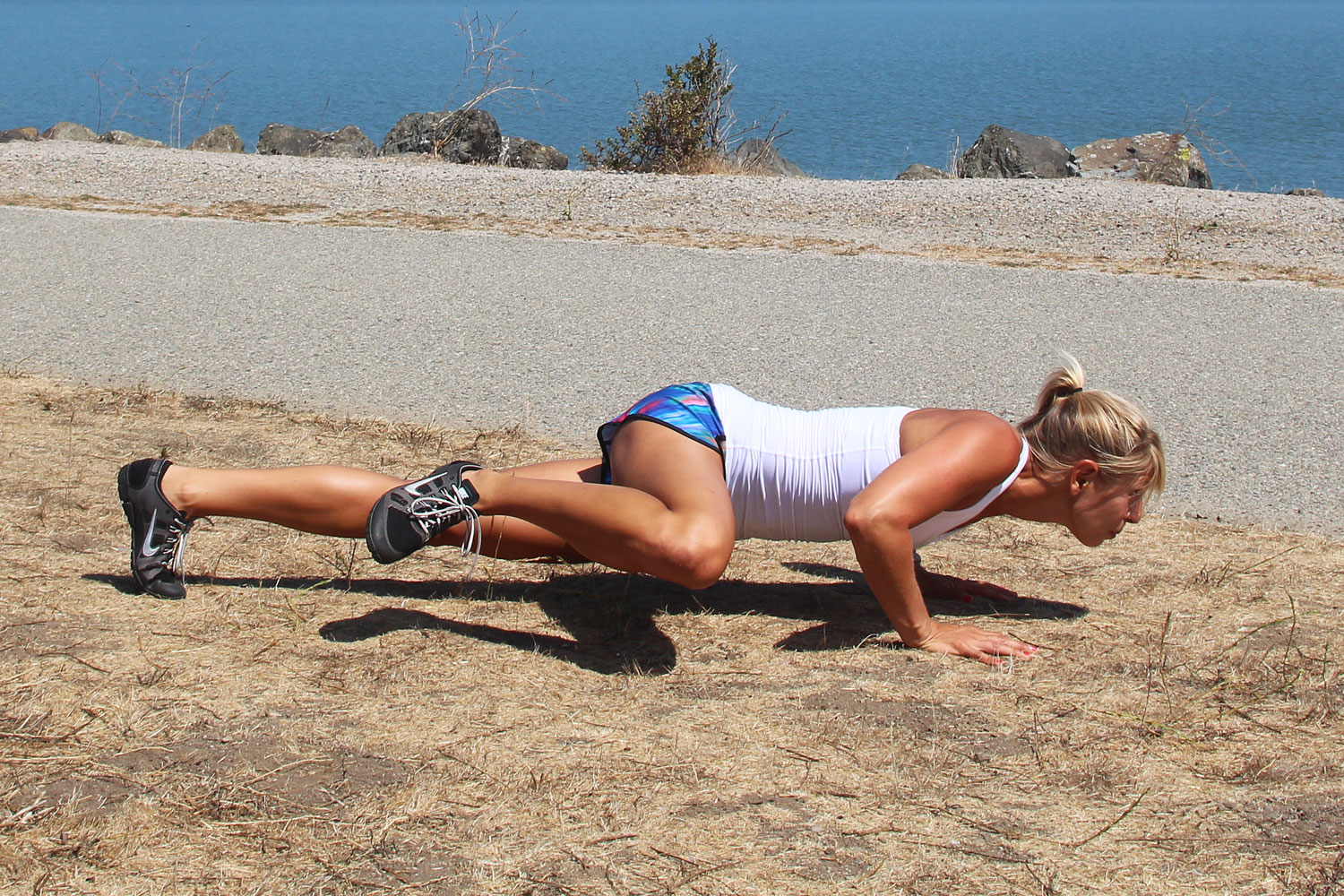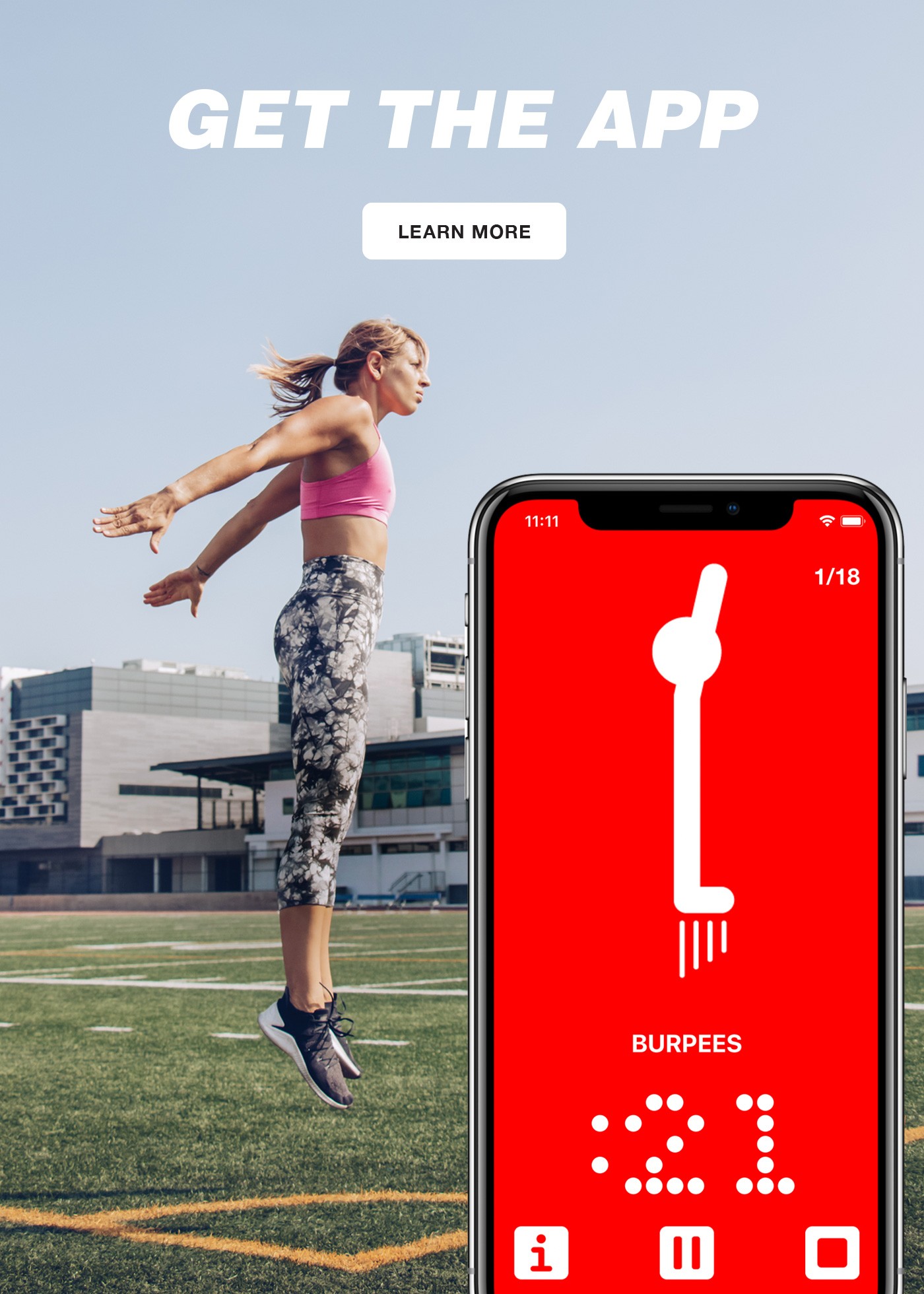
We’ve all been there.
You’re kicking ass at your goals, feeling so much stronger, hitting new PRs every week, noticing how much looser your jeans are starting to feel…
And then one day, it all just stops. The number of push ups you can do stays the same, for a long time. All of a sudden, after months of continuous progress, your 100 burpees time refuses to budge. Or maybe you just can’t seem to lose those last five pounds, even though the first 10 seemed to go pretty quickly.
And bam, seemingly out of nowhere, you’ve hit a plateau.
So what exactly is a plateau?
A plateau is basically when you feel like you’re doing all the right things… yet you’re failing to make any progress.
It’s mindblowingly frustrating. And unfortunately, it’s inevitable.
Plateaus happen for a variety of reasons, including:
- Not pushing hard enough during your workouts
- Not giving your body adequate nutrition
- Having mental blocks around a certain exercise or working out in general
- Needing to take some time off from training
Among other reasons.
No matter what you do to prevent them, plateaus will happen. Everybody plateaus at some point in their training, and most people will plateau many, many times.
But that doesn’t mean you can’t eventually push through them and keep making progress.
Here are several ways to deal with plateaus:
Take some time off
About a month ago, I went to Europe for a couple of weeks to travel and visit Amsterdam, where I used to live. About two weeks before I left for my trip, I hit a total plateau with my training.
My handstands weren’t improving, and I felt constantly sluggish and pretty unmotivated in general, yet I kept pushing really hard. By the time I left for my trip, I was pretty frustrated and burnt out, but was really worried my time away would end up hurting all the progress I’d made beforehand.
I went on the trip, and although I did work out every day, my time and energy spent dedicated to skill training (holding handstands, practicing gymnastics and working on holds like L-sits) was greatly reduced. Furthermore, although I still worked hard during my workouts, I wasn’t ever out to get a new PR during those two weeks—I just got through them and then went on with the rest of my day.
So what happened?
When I got back to my normal routine, I immediately noticed that not only had I not lost any strength or skills during my time gone, I was actually stronger and better at the things I’d been struggling at before I left, despite not really having worked on them much when I was gone.
I’d conquered my plateau by doing nothing but resting more!
The lesson: Sometimes, your body just needs a break. Take a week (or two) off hardcore training here and there, whether it’s because you’re going on vacation, or you’re just at home and your body is asking for it. Not only will it help your body recover from all the training you’ve been doing (think: bigger and stronger muscles), it’ll keep you from overtraining, and more often than not will help you get past any plateaus you’ve been experiencing.
Keep better track of your progress
Sometimes, when people reach out telling me they’ve plateaued, I get the feeling that I should ask them how they actually know they’ve plateaued.
For example, do you:
- Dutifully track your reps/time/improvement/any PRs?
- Keep some sort of fitness journal (such as filling out the tracking sheets in Fitter Faster Stronger, our 90-day premium program)?
- Consistently track your goals and progress made?
The usual response? Yeah, you guessed it: no.
Most people don’t do a great job of tracking their goal progress, whatever it is. But if you don’t keep track, how will you know you’ve ever actually plateaued?
The lesson: Make sure to track your workout consistency, strength and skill progress, weight or body fat lost, or anything else you care about so you’re actually aware when you start to plateau.
Mix up your training
Sometimes, our bodies just need us to mix things up a bit in order to keep growing and making progress. This could mean changing the number of days you actually work out per week, or my go-to option, adding some sort of new sport or skill training into your normal activity routine.
So, if you’re currently just doing HIIT workouts, maybe try adding in some skill exercises like handstands, L-sits, and pull up work in after your regular workouts as well (this is what I like to do when I have some extra time). Or better yet, take up a new sport or activity entirely—whether it’s dance, gymnastics, mountain biking, kiteboarding, or skateboarding, make sure it’s something you’ve always wanted to do and feels more like fun than pure exercise.
By doing this, not only will you pick up a new skill, you’ll more likely than not end up infusing more energy into your regular day-to-day training, and as a result, start progressing there again as well.
The lesson: Changing up your routine and adding in new sports and activities will not only help you stay more motivated to work out and remain active, it may be just what you need to continue progressing with your regular fitness and health goals as well.
Work harder
Often, people will contact me telling me they’ve hit a plateau and I’ll respond by asking them two main questions:
1. How consistent are you? Do you make sure to work out often enough to meet your goals?
2. How hard are you working during your workouts? Do you often feel like you have a lot more to give afterwards?
Unsurprisingly, a lot of people respond by telling me that well, they haven’t been as consistent as they would have liked, and yeah, they have been a bit lazy during their actual workouts lately, and could probably find the energy and discipline to push harder.
The lesson: In order to keep progressing at your health and fitness goals, whether they’re skill, strength, or weight-loss related, you have to be willing to push yourself past your personal limits a good portion of the time. Work harder!
Give yourself a break
We all have bad days, weeks, months, even years. Maybe you’re so stressed with work or family stuff that your body just isn’t cooperating like you want it to—accept that that’s how it is and don’t be too hard on yourself.
Don’t give up altogether—just know that you’re going through a hard time, it’s temporary, and you will get through it.
Try some of the other strategies I mentioned in this post, but overall, you need to realize that plateaus will happen, but as long as you’re consistent, work hard, and give your body proper rest and nutrition, you will push past them.



Great article!
http://instagram.com/p/vKA4YYGBGM/